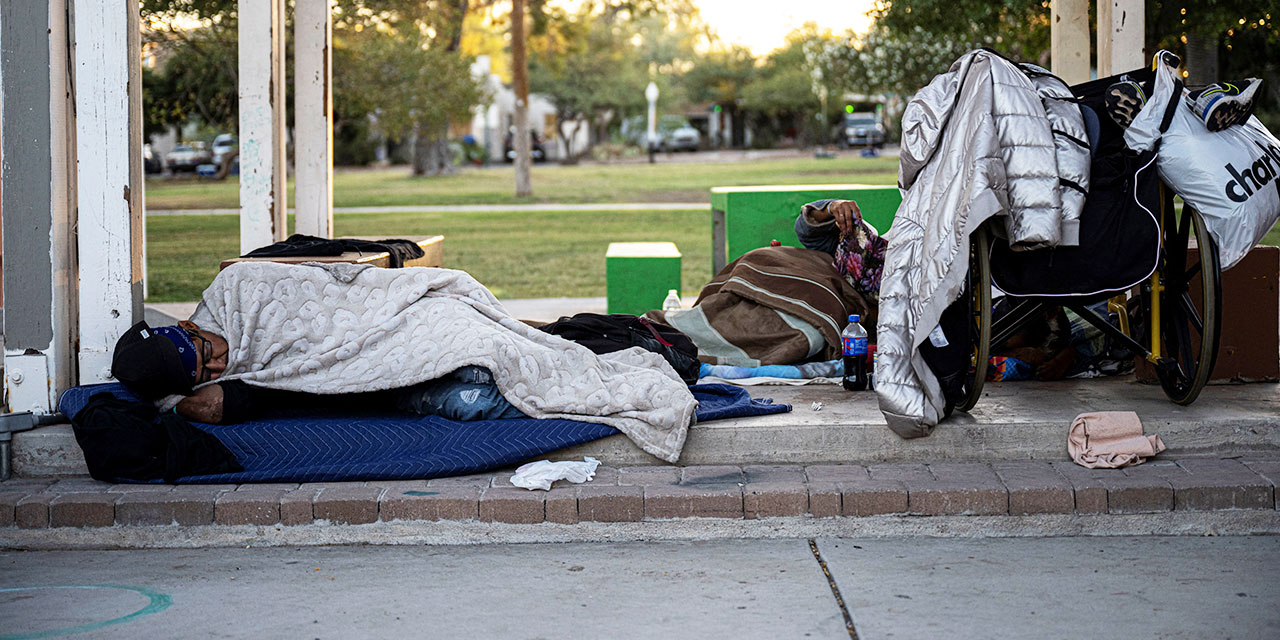
Arizona once again finds itself at the center of a major legal battle over its rampant street homelessness. In May, the state’s Court of Appeals overturned a lower court ruling, finding that the city of Tucson can be held liable for failing to abate the “public nuisance” resulting from a homeless encampment.
It marks another legal setback for an Arizona city, and another win for those demanding stronger action on homelessness. Late last year, Phoenix officials agreed to a $300,000 settlement with business owners following litigation over the city’s handling of the sprawling encampment known as “The Zone.” Both cases reflect surging homeless populations: the number of people living on Tucson’s streets has grown by a factor of 3.5 since 2019, while unsheltered homelessness in Phoenix has risen by more than 60 percent over the same period.
Finally, a reason to check your email.
Sign up for our free newsletter today.
The Phoenix and Tucson lawsuits mark significant developments in the broader effort to hold policymakers accountable for failing to address the street homelessness crisis. As more cities are forced to pay settlements or comply with consent decrees, it’s becoming harder for officials to evade their responsibility to maintain safe, clean streets, parks, and public spaces.
Other legal flashpoints have appeared around the country. A lawsuit in Los Angeles between the L.A. Alliance for Human Rights and the city and county of Los Angeles culminated in a settlement in federal court, which officials are now accused of failing to uphold. Last summer, the city of Grants Pass, Oregon, was at the center of a major Supreme Court ruling that found no federal restrictions on the powers of local officials to regulate sleeping in public spaces.
While litigation has proven to be an effective strategy for reform advocates, it has limitations. An Oregon judge responded to the Supreme Court’s ruling in Grants Pass v. Johnson by blocking the city’s enforcement of camping restrictions under state law, effectively ending the city’s use of its new authority.
Reformers in other states have opted to focus on legislation. The activist organization Housing Not Handcuffs has tracked the rapid spread of state legislation that aims to limit street camping, regulate homeless-service providers, and reorient funding to treatment- and recovery-focused services. Lawmakers across the political spectrum have turned these bills into law, with some legislatures even passing resolutions calling on the Department of Housing and Urban Development to overhaul the federal approach to homelessness.
These two strategies—litigation and legislative advocacy—may soon converge in Boise, Idaho. Residents are awaiting the mayor’s response to a recently passed state law banning public camping, set to take effect July 1. Mayor Lauren McLean’s staunch opposition to the bill signaled the city’s reluctance to comply, but officials are expected to release a policy in the coming weeks. If Boise (or any another Idaho city) fails to comply fully, the law empowers the state’s attorney general to bring suit.
Residents of Boise, and of other cities where leaders show little urgency in addressing street homelessness, may begin looking to the legal strategies used in Tucson and Phoenix. Holding municipalities financially accountable for the public nuisances created by failed policies and floundering leadership could become a model for civic action.
Photo by ERNESTO BENAVIDES/AFP via Getty Images
City Journal is a publication of the Manhattan Institute for Policy Research (MI), a leading free-market think tank. Are you interested in supporting the magazine? As a 501(c)(3) nonprofit, donations in support of MI and City Journal are fully tax-deductible as provided by law (EIN #13-2912529).
Source link

















